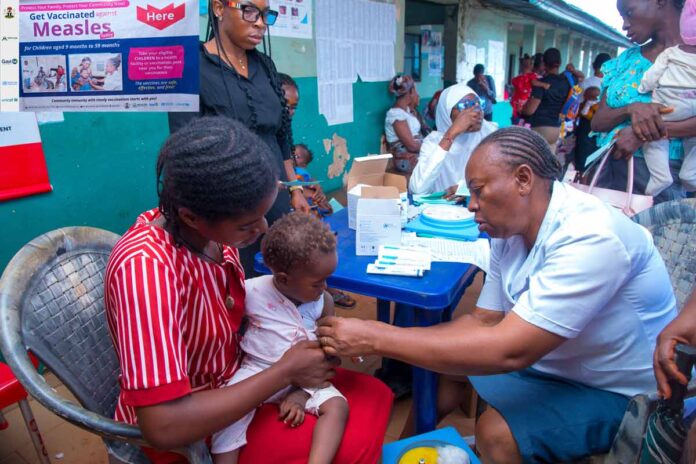Let’s cut right to it: measles is back—and with a vengeance. The U.S. Centers for Disease Control and Prevention (CDC) recently flagged a measles resurgence in Nigeria, urging countries and travelers to ramp up immunization coverage before another outbreak explodes. And no, this isn’t just an alert—it’s a call to action.
According to provisional World Health Organization data from November 2024 to May 2025, Nigeria recorded 2,730 confirmed measles cases, placing it among the top ten worst-hit countries globally. That’s an urgent signal that our immunity defenses are dangerously low.
At the same time, the CDC expanded its global travel health notice on May 27, 2025, advising any international traveler—not only those heading to traditional hotspots—to ensure full MMR (measles-mumps-rubella) vaccination before departure. They even specify an early dose for infants aged 6–11 months and two standard doses for everyone older than a year.
So why this sense of urgency? Because measles is astoundingly contagious—one infected person can pass it to 9 out of 10 unvaccinated individuals. And Nigeria isn’t just seeing sporadic cases: it’s experiencing ongoing outbreaks. In January 2025 alone, 627 suspected cases spanned 30 states and 213 local areas, according to the Nigeria Centre for Disease Control. Add to that the fact that 2024 saw 311 local government outbreaks across 36 states, and the scale becomes crystal clear.
In this article, I’ll walk you through why strengthening immunization coverage is our best defense, the barriers standing in the way, what the CDC and global partners are doing, and what Nigeria itself is doing to finally turn the tide. No fluff. Just real talk, grounded in data—and with a plan.
The Threat: Measles in Nigeria
Let’s dive into the heart of the issue—what’s currently unfolding on the ground in Nigeria—and why the CDC’s alarm isn’t an overreaction but a lifesaving wake-up call.
Ongoing Outbreaks Across the Country
As of March 2025, the Nigeria Centre for Disease Control reported that 356 Local Government Areas across 37 states have recorded measles outbreaks. Among them, Katsina recorded the highest number of affected LGAs at 26, with Adamawa, Jigawa, and Kaduna each at 19 LGAs. Even more alarming, 232 LGAs are still experiencing active outbreaks, a concerning signal for ongoing community spread.
Recent Surge and Spike in Cases
In January 2025, Nigeria reported 627 suspected cases across 30 states and 213 LGAs, of which 112 were confirmed—showing that confirmed cases remain significant despite improvements in testing capacity. Compared to January 2024’s 2,157 suspected cases, this represents a major improvement—an approximately 70% drop—but it still reflects high baseline transmission. The good news? There were no deaths among the confirmed cases in January 2025, contrasting with a 0.96% fatality rate (23 deaths) in the same month of 2024. Still, the gravity of the disease remains unacceptably high.
Who’s Most at Risk
Children aged 9–59 months continue to bear the brunt—with nearly half of confirmed cases falling within this age group.
Unvaccinated and Vulnerable
A staggering 81–82% of confirmed cases in early 2025 involved “zero-dose” children, meaning they hadn’t received even a single measles vaccine shot. That’s more than 8 out of 10—exactly where measles finds its next victims.
Nationwide Spread Highlights Gaps
At the end of December 2024, 311 LGAs reported outbreaks across 36 states, and about 73% of confirmed cases were zero-dose, with 77 deaths recorded—a reminder that this is far from an isolated issue.
Why This Matters
Such widespread outbreaks across nearly all states highlight the limited reach of routine vaccination and response systems. The preponderance of unvaccinated children underscores gaps—many are being missed entirely by the system. This places both localized communities and international travelers at continuous risk, which is precisely why the CDC updated its global travel advisory on May 27, 2025, urging full MMR immunization before any international travel.
The Bottom Line
We’re not just observing sporadic flare-ups. This is an entrenched, systemic challenge spanning Nigeria’s entire geography. Measles isn’t just threatening isolated communities—it’s threatening the entire country’s public health architecture. Strengthening immunization isn’t a nice-to-have—it’s now a critical lifeline.


